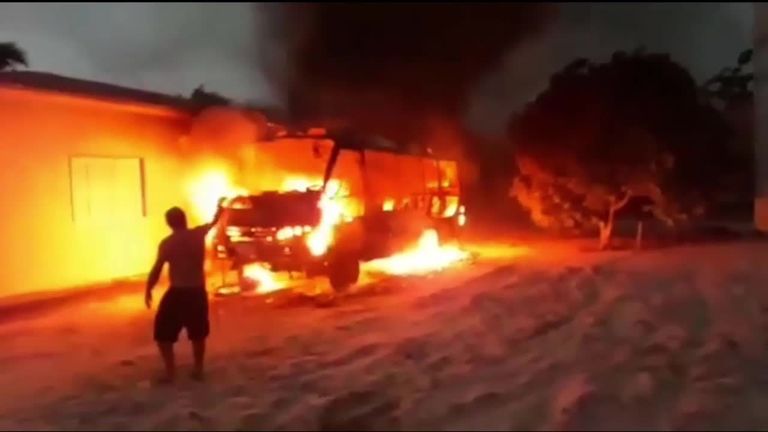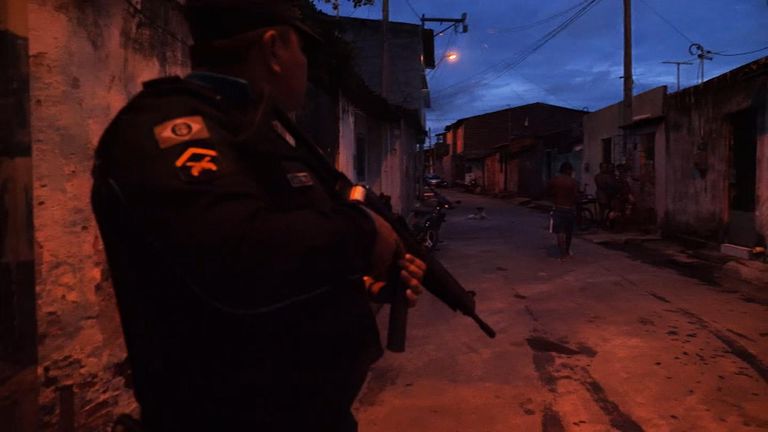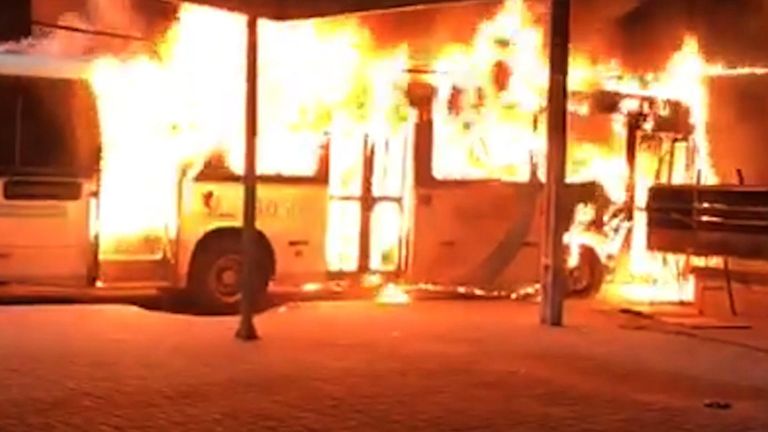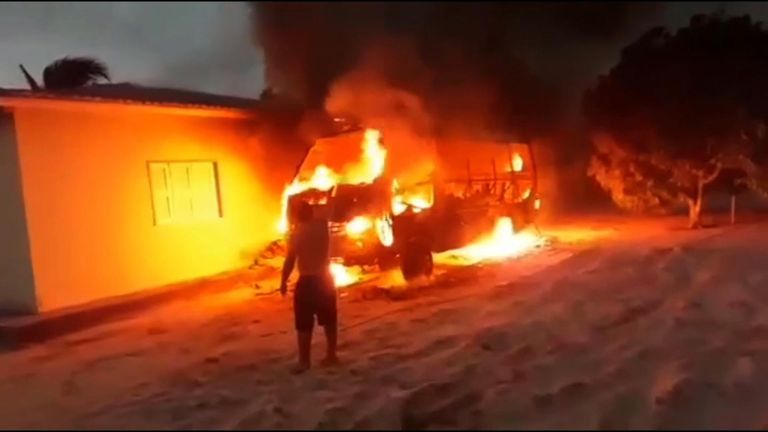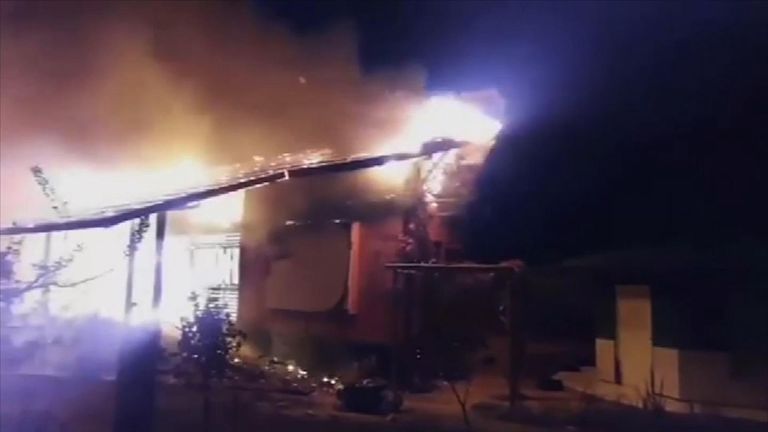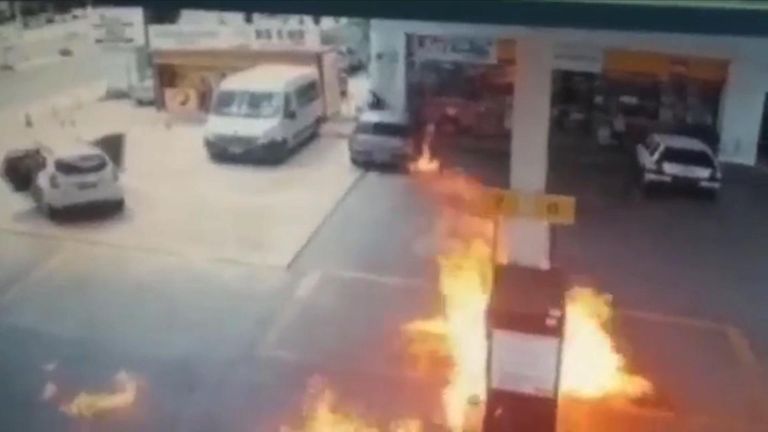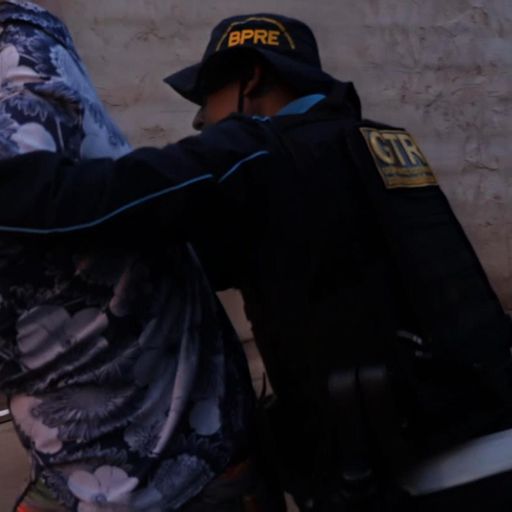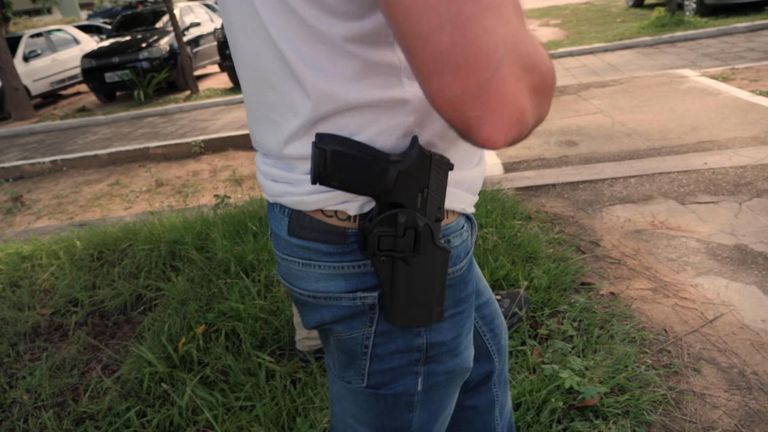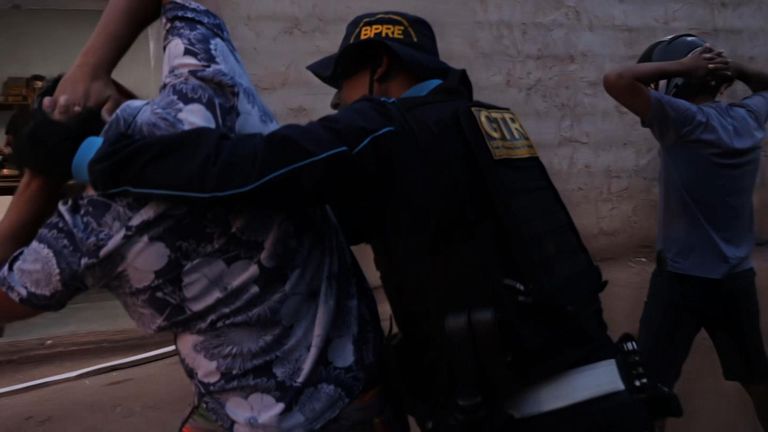From jail, crime bosses blow up bridges and set petrol stations on fire
Sky's Stuart Ramsay reports from Fortaleza in Brazil, where criminals behind bars are effectively running the prisons themselves.
Friday 18 January 2019 21:43, UK
Petrol stations set alight, bridges blown up and police stations torched are just a few of the ways crime bosses in Brazil are flexing their muscles from within the confines of their prison walls.
The recent orders of destruction from the powerful inmates came after authorities led a crackdown on living conditions for those behind bars.
But the recent week-long violence in the northeastern city of Fortaleza has now compelled a group of Brazil's senior regional justice ministers to call for gang attacks on infrastructure to be reclassified as terrorism.
This would ensure much tougher sentences, with those responsible being charged with carrying out violent attacks rather than the less serious crime of damaging property.
Criminals in Brazilian prisons, like in many other Latin American countries, effectively run the prisons themselves - with the authorities happy simply to keep the prison population behind bars.
The prisons clampdown is seen as the first stage in a co-ordinated campaign to bring greater law and order to the whole country.
It was a key feature of President Jair Bolsonaro's often controversial election campaign.
A Donald Trump fan and an unabashed supporter of big business and capitalism, Mr Bolsonaro has been heavily criticised in Brazil for his often misogynistic and homophobic comments.
Mr Bolsonaro has infuriated many by promising to curtail the work of non-governmental organisations (NGOs) in the country, handing over the protection of the Amazon and the lands of indigenous people to the agriculture department, dismissing global warming and harking back, with fondness, to the days of Brazilian dictatorship and death squads.
He is pro-gun ownership and has already loosened ownership laws. He still refuses to condemn torture.
Despite all of this, his determination to try and restore or at least improve law and order will certainly be popular in a country blighted for years by a constant threat from crime.
Fortaleza, a seaside resort of four million people, many of whom live in considerable poverty, is the state capital of Ceara.
The gangs are often affiliates of far more powerful gangsters in Sao Paulo and Rio, but they are still a formidable power here and control with an iron hand the many favelas, or slums, that span miles around the popular, if fading, resort beaches.
Security forces say three rival gangs joined forces to attack the city's infrastructure in retaliation against plans to scrap the separation of rival factions in prison.
If they are not kept apart, they kill each other inside.
But the security secretary for the state, Andre Santos Costa, insists that a change in the prison system is needed, as well as a change in the law.
In the garden of the state police headquarters, he said: "We have prepared for this and we want changes in the prison.
"We need to lower the numbers and improve the prisons which will help their human rights.
"We will make these changes."
Mr Costa cuts an unusual figure for a politician.
Slim and fit and packing a gun, he is an elected official but also a serving officer, a job he says he will return to when his time is done as public security secretary.
"I am a specialist detective in organised crime and drug trafficking - that is what I do. I still go out with the police," he explained.
Mr Costa and his equivalents across the country want the charge of terrorism brought against crime gangs that attack national security.
Fortaleza is regarded by gang crimes as an important asset in their global drug distribution business because it is the closest large port to Europe and Africa.
Drugs flowing into the UK and Europe often leave South America from here.
It has meant that local gangs are constantly pressured by the big gangs from the south, and turf wars are common.
More 10 to 19-year-olds are murdered here than anywhere else in the country.
Lethal violence is often delivered with casual disregard.
Police on the street say they have retaken control after hundreds of heavily armed national security police were drafted in from around the country to support them and allow the locals to get into the favelas to make arrests.
Perhaps the most significant development, though, was the decision to remove the crime bosses from local prisons and put them in state facilities, while simultaneously confiscating mobile phones and removing electricity sockets from prison cells so the inmates are cut off from the outside world.
The new president will doubtless be pleased that in his first few weeks in power he has seen off, for the time being at least, a major crime world uprising against his new policies.
Whether he has the time and resources to pull this off nationwide is a different matter completely.
